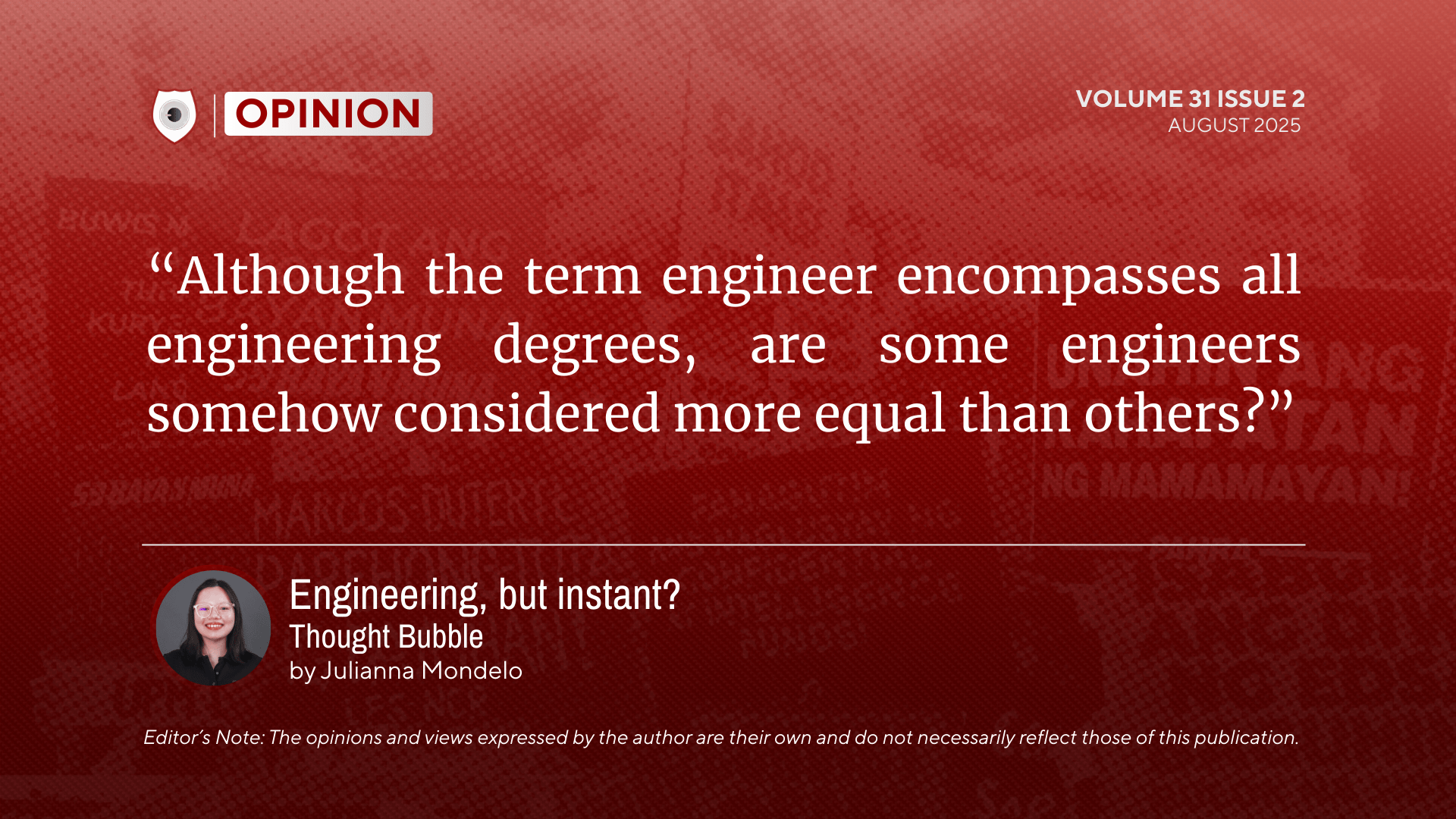Written by Julianna P. Mondelo | August 17, 2025
Engineering, but instant?
WHEN you hear the word instant, do you treat the term with little value, often associating it with noodles, something microwavable—something instantly served? Or perhaps you cast it in a negative light, because nothing good ever seems to come from something done in an instant, right? So, why does the term also apply to a certain program—a stereotype or a running gag for a particular engineering degree? Baffling as it sounds, unfortunately, the label lingers.
Wait, isn’t engineering such an esteemed profession that it cannot possibly be accomplished in “a blink of an eye” or “in a heartbeat”? Aren’t those degree-holders, the ones who bear the Engr. title, often looked up to? The ones who earn a tremendous amount of money as they deal with buildings of all sorts? I wouldn’t blame you if you instantly think of that, because I once did as well before I delved thoroughly into engineering. Especially when you search the term, you are immediately bombarded with stereotypical stock photos of individuals wearing hardhats, holding blueprints, and surrounded by construction firms—sometimes mistaken as architects.
So, what am I talking about? The so-called instant engineers: Industrial engineers—a program, my program, often sidelined and underestimated simply because it does not fit the usual image or stereotype. We are not the ones you imagine when you think of “true” engineers, and are often unheard of, even in engineering content across Instagram reels or TikTok videos. And again, I wouldn’t blame you.
In fact, some fellow engineers don’t even count us as one, especially since, unlike other engineering programs, we don’t have a PRC Board exam or a license. We lack rigorous math; we deal with finance more. Our career does not usually involve physical constructs like machines or infrastructures, again unlike others. Instead, we mostly handle abstract concepts, things not always seen—such as processes, problem-solving, and managing. But does that mean we’re worth less? Who decides what makes an engineer more “real” than another?
It is a double-edged sword to be labeled as “jack of all trades, master of none.” We are told that we are versatile, applicable to any field we want, as long as there’s a process involved, yet we are not considered experts in anything. Nonetheless, we can turn that into our strength: we can specialize in one industry or niche, we can be data analysts, we can work in manufacturing industries, or even go corporate.
But don’t get me wrong—despite all of these labels, we are vital. Industrial engineers are the backbone of manufacturing. All the products and services you receive exist because of minds like ours. We optimize processes, ensuring they are efficient and effective so that more products can be produced. Perhaps we should change our perspective on the word “instant.” Maybe we should view industrial engineers as instant engineers in solving pressing issues.
Nevertheless, I still have a question. Although the term engineer encompasses all engineering degrees, are some engineers somehow considered more equal than others? Do those who have licenses, who pass board exams, instantly become better or more successful than others? I don’t think so. Why should success be limited to only a piece of paper? And I don’t only mean this for engineers, but for all careers and fields. Success is subjective; it is something you define and create based on the path you yourself carved and not by the degree attached to your name.
I’m yet to prove myself since I’m still halfway there. But whether you’re planning to be an engineer, already are one, or simply scrolling by, know this: don’t be afraid if others judge you because of the degree you’ve chosen. Don’t mull over the labels they throw at you, embrace or break free from these bounds.
Volume 31 | Issue 2




